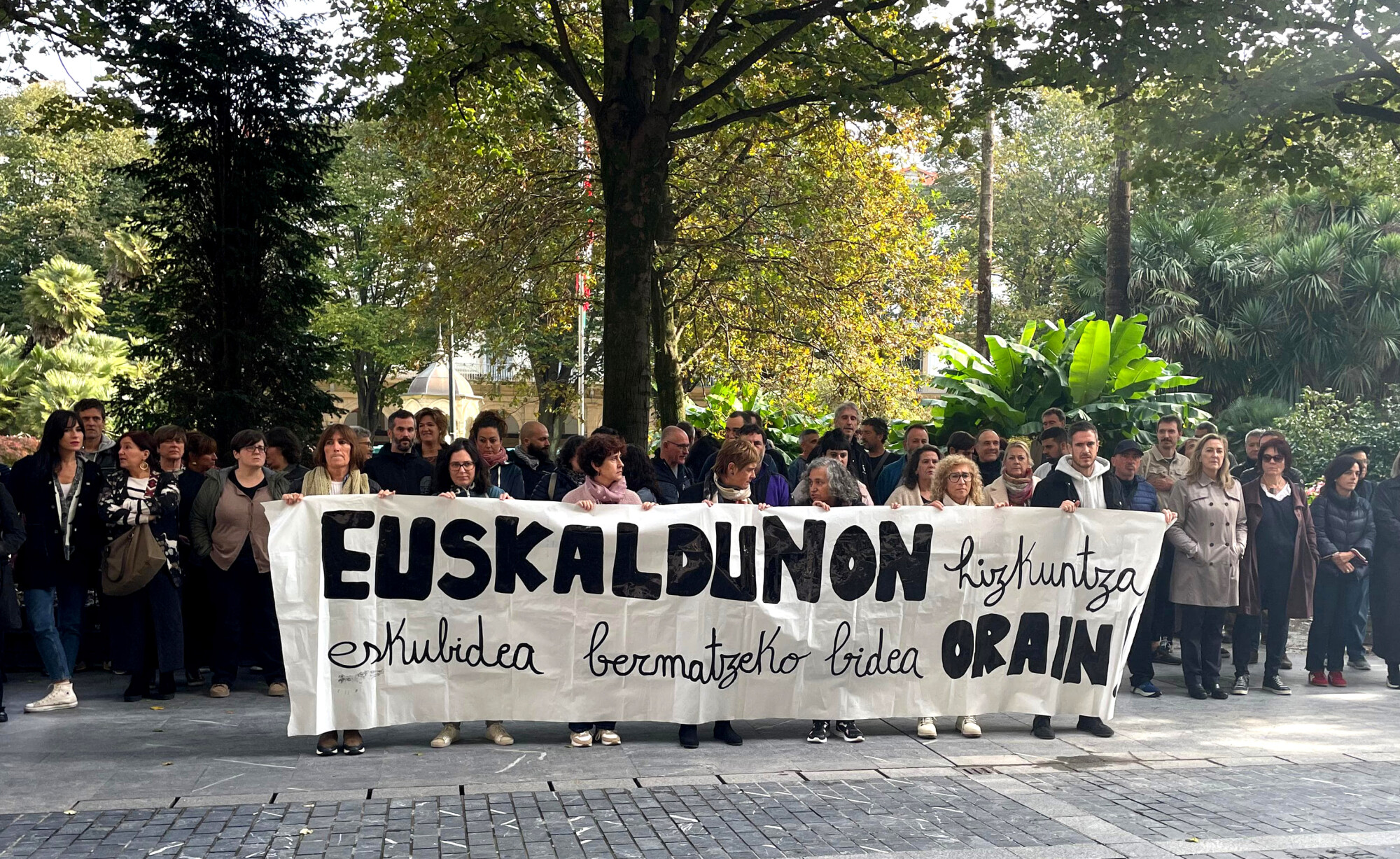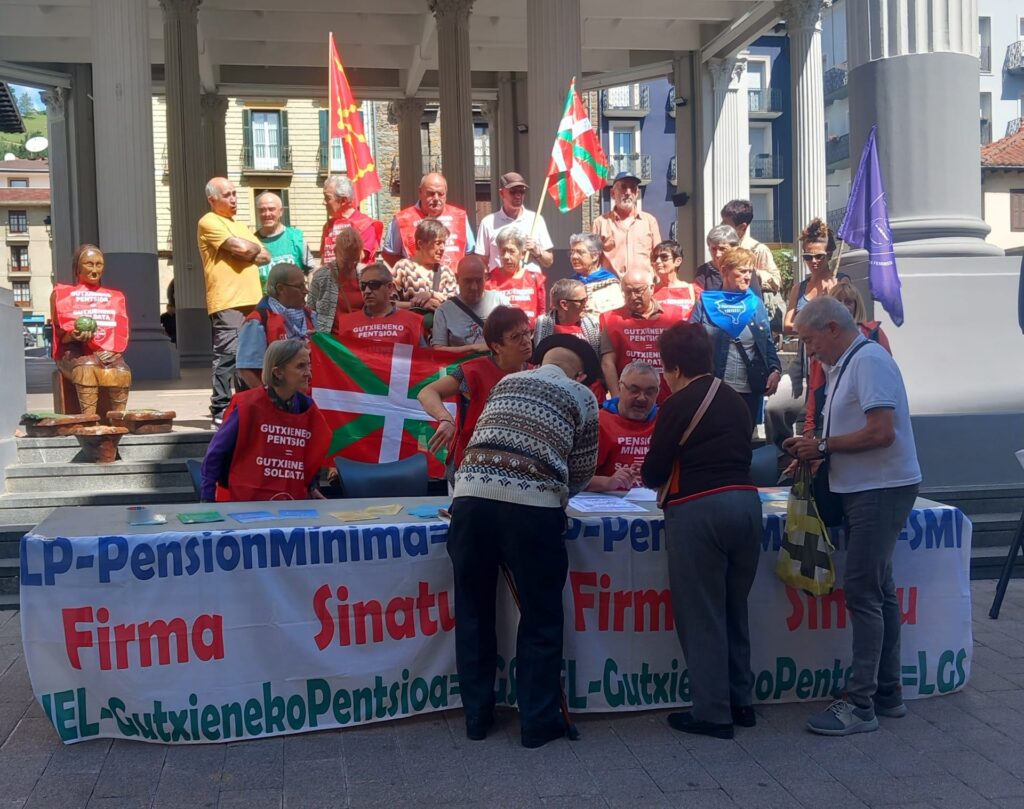Rising and declining inflation
- In the Basque Country, in March, the year-on-year variation in CPI was 9.6%, and in April it has dropped to 8%, despite the fact that energy control measures have continued to increase food prices.

In recent months there has been a significant increase in all prices. In the post-pandemic context, the trend initiated before the war in Ukraine is based on energy and food prices. Although the last month has slowed, the Consumer Price Index is increasing significantly, and more than half of this increase is due to the price of energy. In the Basque Country, in March, the year-on-year variation in CPI was 9.6%, and in April it has dropped to 8%, despite the fact that energy control measures have continued to increase food prices.
Causes of inflation
The rise in prices has led to very profound discussions in the economic field. On the one hand, it has structural factors. José Luis Sampedro studied the ownership and power of companies in the book Inflation: prosthesis of the 1975 system, highlighting the control of oligopolies' prices and the ability to provoke violence. Economist Juan Laborda, for example, frequently points out that the structural factors are the financing of the economy, the oligopolization of transnational companies and the speculative processes of some products, such as those related to energy and food. In the same vein, Michael Roberts places current inflation in supply problems, as a result of the industrial crisis, the slowdown in international trade and the level of investment.
"José Luis Sampedro studied the ownership and power of companies in the book "Inflation: prosthetic system" of 1975, highlighting the control of oligopolies' prices and the ability to provoke violence"
In addition, there are conjunctural factors associated with post-pandemic economic recovery. On the one hand, the completion of the restrictive measures led to an increase in consumption and also in recruitment. This accentuated the upward trend. On the other hand, supply chains had problems in meeting demand, and prices increased.
Added to all this is the influence of the war in Ukraine. In fact, Russia and Ukraine produce 17 per cent of world maize, 30 per cent of wheat and 80 per cent of sunflower oil. The instability of the war and the penalties imposed on Russia have made these products less imported and their price has increased. If that were not enough, the Spanish Government's statements on the Sahara have clouded relations with Algeria, which supplies 45% of the state's gas.
Effects of inflation
Currently, nominal wage increases are not at the same level as price increases. Consequently, inflation leads to a decrease in the purchasing power of workers’ wages. To reverse this effect, workers’ wages (or pensions and social benefits) should grow at the same level as price increases. This is one of the keys to the workers’ struggle at the moment: to adapt wages to the rise of the CPI so that its standard of living does not deteriorate.
"The growth of wages, pensions and social benefits for workers at the same level as rising prices is one of the keys to the workers' struggle at the moment"
We know, however, that this is an exception. In fact, only 1.2 million Spanish workers guarantee a wage update in line with the CPI. In other words, the wages of a large majority of workers have not been updated on the basis of price increases, and the purchasing power of their wages, the real wage, has decreased. The increase in the Minimum Lifetime Income of 2022 and the updating of 5.5% of the Minimum Wages and 2.5% of the pensions have been aimed at adapting to the increase in prices. However, inflation is above that.
On the other hand, inflation, despite the decrease in the purchasing power of wages, may have different effects. For states and public institutions, for example, inflation is usually good, as their public debt is set in constant euros. By lowering the value of money with inflation, it also decreases the value of State debt. In addition, people with debts and companies will also be grateful for inflation because the value of their debt decreases. Conversely, price increases are often detrimental to banks, shareholders and lenders.
However, as long as wages are not updated according to the CPI, employees, pensioners and recipients of social benefits are those who suffer the greatest damage to inflation. Paradoxically, price control has been an obsession attributed to the neoliberal right.
Solutions
The stagnation of the economy in the 1970s and the oil price crisis gave rise to a situation of stamping, in which the Keynesian policies employed so far did not serve, by attributing the increase in inflation to expansionist policies. Then, monetarist theories began to be imposed, which set as a priority objective the control of inflation. The fact is that the main measure for this was to limit salaries, taxes and public expenditure, below the increase in the CPI. This solution, of course, further reduced the purchasing power of wages and increased unemployment.
"The solution is to initiate a process of de-commodification and democratic control of the production and redistribution of goods"
In view of this, it should be the first step to call for the updating of salaries, pensions and social benefits over and above the CPI. In addition, it is necessary to establish short-term price control mechanisms, mainly for energy, housing and food.
The economy organised through the market repeatedly harms the living conditions of the working class. The solution is to initiate a process of de-commodification and democratic control of the production and redistribution of goods so that life does not depend on fluctuations in the market and prices. In the short term, large companies can be disciplined or nationalised. However, since capitalism is chaos, as economist Mario del Rosal said, the socialization of production and democratic planning are fundamental.
A few weeks ago, the President of the European Union, Ursula von der Leyen, reported on the need for military spending of eight hundred billion euros. This expenditure is said to be in response to a military threat to which Europe is exposed, and it has been confirmed that there... [+]
Euskadi markak, eraikuntza sektoreko ekonomiaren estrategian, “industrializazioa” mantrarako hitz gisa hartu duela jakinarazi berri du Eusko Jaurlaritzak. Etxebizitza publikoaren eraikuntzan industrializaturiko prozesu eta elementuak lan guztien %65a izatea... [+]
As we explained in our book on adaptation, in view of the decline in European military spending since the late 1980s of the last century, at the beginning of the 21st century European death traders decided to organize themselves and structured themselves as lobbies imitating the... [+]




















